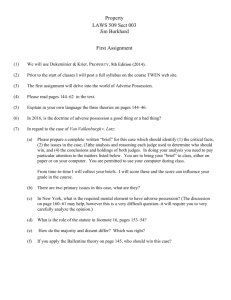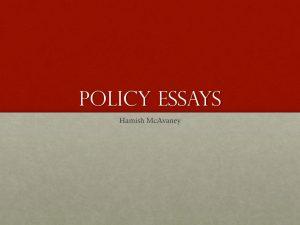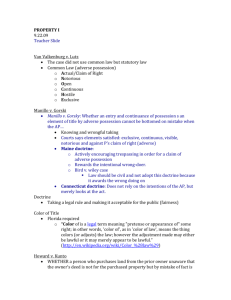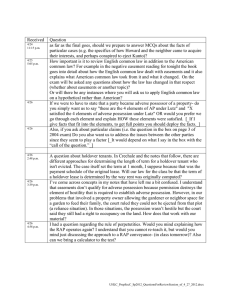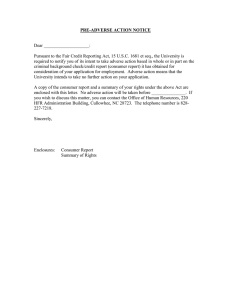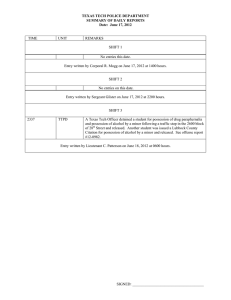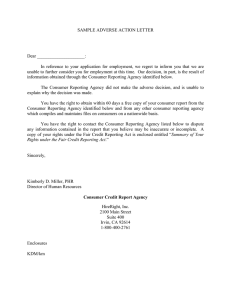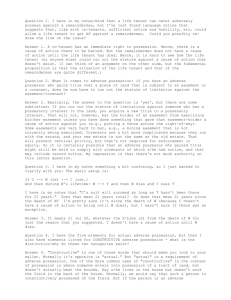Real Estate and Land Use Law Update
advertisement
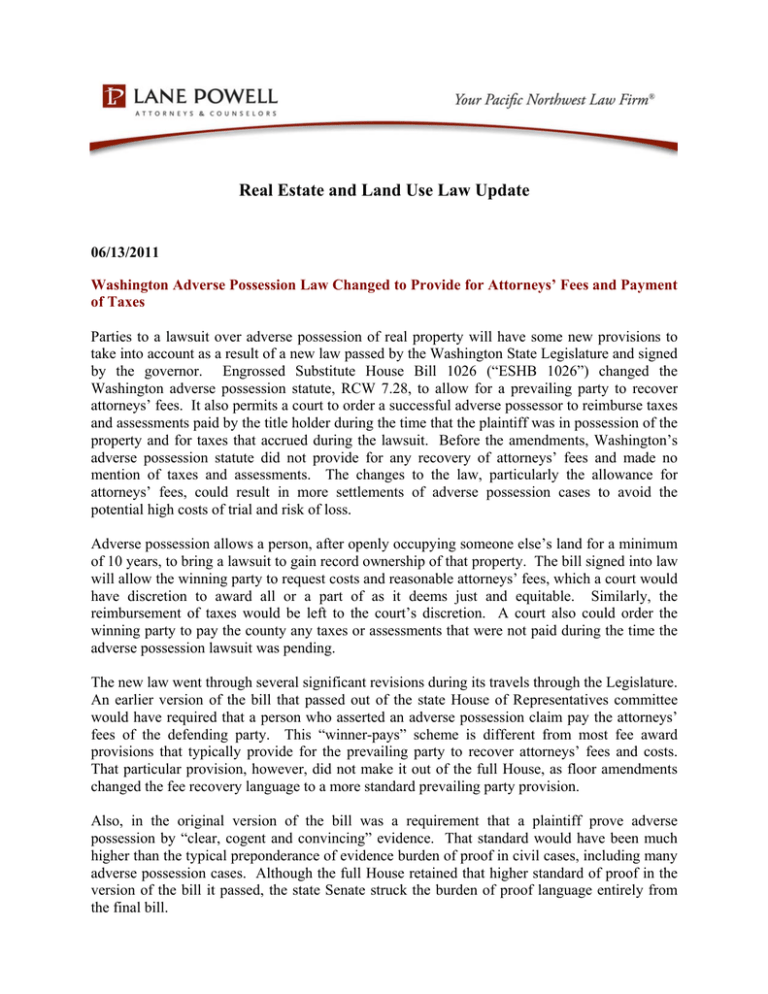
Real Estate and Land Use Law Update 06/13/2011 Washington Adverse Possession Law Changed to Provide for Attorneys’ Fees and Payment of Taxes Parties to a lawsuit over adverse possession of real property will have some new provisions to take into account as a result of a new law passed by the Washington State Legislature and signed by the governor. Engrossed Substitute House Bill 1026 (“ESHB 1026”) changed the Washington adverse possession statute, RCW 7.28, to allow for a prevailing party to recover attorneys’ fees. It also permits a court to order a successful adverse possessor to reimburse taxes and assessments paid by the title holder during the time that the plaintiff was in possession of the property and for taxes that accrued during the lawsuit. Before the amendments, Washington’s adverse possession statute did not provide for any recovery of attorneys’ fees and made no mention of taxes and assessments. The changes to the law, particularly the allowance for attorneys’ fees, could result in more settlements of adverse possession cases to avoid the potential high costs of trial and risk of loss. Adverse possession allows a person, after openly occupying someone else’s land for a minimum of 10 years, to bring a lawsuit to gain record ownership of that property. The bill signed into law will allow the winning party to request costs and reasonable attorneys’ fees, which a court would have discretion to award all or a part of as it deems just and equitable. Similarly, the reimbursement of taxes would be left to the court’s discretion. A court also could order the winning party to pay the county any taxes or assessments that were not paid during the time the adverse possession lawsuit was pending. The new law went through several significant revisions during its travels through the Legislature. An earlier version of the bill that passed out of the state House of Representatives committee would have required that a person who asserted an adverse possession claim pay the attorneys’ fees of the defending party. This “winner-pays” scheme is different from most fee award provisions that typically provide for the prevailing party to recover attorneys’ fees and costs. That particular provision, however, did not make it out of the full House, as floor amendments changed the fee recovery language to a more standard prevailing party provision. Also, in the original version of the bill was a requirement that a plaintiff prove adverse possession by “clear, cogent and convincing” evidence. That standard would have been much higher than the typical preponderance of evidence burden of proof in civil cases, including many adverse possession cases. Although the full House retained that higher standard of proof in the version of the bill it passed, the state Senate struck the burden of proof language entirely from the final bill. The changes to the law will not affect current adverse possession cases; it will only apply to adverse possession actions filed on or after July 1, 2012. For more information, please contact the Real Estate and Land Use Practice Group at Lane Powell: realestate@lanepowell.com This is intended to be a source of general information, not an opinion or legal advice on any specific situation, and does not create an attorney-client relationship with our readers. If you would like more information regarding whether we may assist you in any particular matter, please contact one of our lawyers, using care not to provide us any confidential information until we have notified you in writing that there are no conflicts of interest and that we have agreed to represent you on the specific matter that is the subject of your inquiry. Copyright © 2011 Lane Powell PC Seattle | Portland | Anchorage | Olympia | Tacoma | London 2
